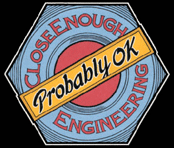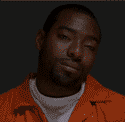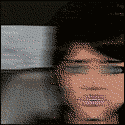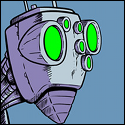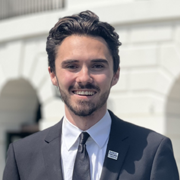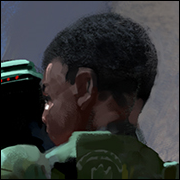|
I really like that Harry's snappy comeback to Hermione's victory is essentially, "well books are dumb, so I didn't care if I won anyway!" I can imagine him stamping his petulant little feet in humiliated rage.
|
|
|
|

|
| # ? May 17, 2024 17:50 |
|
value-brand cereal posted:Oh my bad. I miscalled it as it was about three or four years ago. Well I assure you, podfics are a thing and people make recordings of poo poo they like. At least I was wrong about it being incest! Ohhhhhh gently caress I remember this it was the loving funniest thing ever
|
|
|
|
Pvt.Scott posted:I really like that Harry's snappy comeback to Hermione's victory is essentially, "well books are dumb, so I didn't care if I won anyway!" I can imagine him stamping his petulant little feet in humiliated rage. Yeah! What the hell was that tvtropes garbage of 'Flames Eyes of Fire' poo poo?! I can almost see the anime scenery happening. If this had a decent editor and been reworked this might have been interesting. Muggle raised kid bringing a scientific approach to magic and there could be some tense plot poo poo about whoa, will the wizarding world mistake him for a Dark Wizard? Will Harry and crew grow up good or turn full villain? I'm sure this has probably been written before, and better, already.
|
|
|
|
That Doctor Who crossover is also in dire need of an editor but at least it's been consistently interesting.
|
|
|
|
Chapter 22: The Scientific Method This chapter has a 'Start of Book 2' vibe to it. It opens with a Dramatis Personae, foreword and title section; none of which are interesting. The story then finally delivers on one of its basic premises; a scientific look at magic. This section is generally considered to be the best by reviewers, and so I will quote it in its entirety. HPMOR posted:A small study room, near but not in the Ravenclaw dorm, one of the many many unused rooms of Hogwarts. Gray stone the floors, red brick the walls, dark stained wood the ceiling, four glowing glass globes set into the four walls of the room. A circular table that looked like a wide slab of black marble set on thick black marble legs for columns, but which had proved to be very light (weight and mass both) and wasn't difficult to pick up and move around if necessary. Two comfortably cushioned chairs which had seemed at first to be locked to the floor in inconvenient places, but which would, the two of them had finally discovered, scoot around to where you stood as soon as you leaned over in a posture that looked like you were about to sit down. Starting by citing foreigners and Jews as superior students is not exactly promising, but at this point we just have to accept our main character has some socially inappropriate beliefs. We get a decent scientific protocol, a surprising result, and a lesson in humility. The chemistry between these two characters is great. However, we can also see the problem. Harry's intuition was wrong and people he doesn't like were right. This causes him to completely lose his poo poo, scream, and bang his head like a child with conduct disorder. Later in this same chapter Harry himself recites something he calls the Litany of Tarski. Paraphasing: "If X is true, I want to believe X. If X is not true, I want not to believe X. Let me not become attached to beliefs I may not want." He says that to Draco without a moment of hesitation, but when it's Harry's beliefs that are on the line he can't handle himself. From now on, the author will spare Harriezer from this torment by making every intuition instantly correct. All science from this point on is abandoned in favor of the Aristotelian "A smart guy said so, therefore it's true." The second half of this chapter is a long meeting between Harry and Draco's secret club. Draco still suggests the brilliant solution of "Beat up Hermione" to play to the Slytherin cheap seats, but Harry wants to take the higher road. quote:"What do you care what other people think? Are you really going to live your life needing to explain everything you do to the dumbest idiots in Slytherin, letting them judge you? I'm sorry, Draco, but I'm not lowering my cunning plots to the level of what the dumbest Slytherins can understand, just because it might make you look bad otherwise. Not even your friendship is worth that. It would take all the fun out of life. Tell me you haven't ever thought the same thing when someone in Slytherin is being too stupid to breathe, that it's beneath the dignity of a Malfoy to have to pander to them." They yell at each other for a bit, but Harry eventually acknowledges that Draco has a point and they can't be seen as too closely aligned for now. Rita Skeeter gets name checked, but nothing will ever come of that. Next, Harry comes up with an absurd plan to teach Draco about falsifiablity and competing hypotheses using blood purity as the subject. quote:Harry Potter had then gone into further and considerable detail: Draco was to pretend to be a Death Eater who was posing as the editor of a scientific journal, Dr. Malfoy, who wanted to reject his enemy Dr. Potter's paper "On the Heritability of Magical Ability", and if the Death Eater didn't act like a real scientist would, he would be revealed as a Death Eater and executed, while Dr. Malfoy was also being watched by his own rivals and needed to appear to reject Dr. Potter's paper for neutral scientific reasons or he would lose his position as journal editor. There's a lot of padding before we actually get to the point. quote:On the Heritability of Magical Ability This WOULD be a good moment, if it weren't immediately undercut. What Harry is actually doing is trying to distract Draco and slip in his own hypothesis in a way that Draco won't nitpick. He adds three more ideas on top of blood purism and fading magic, then wordily rules out two of them. It's not mentioned in this chapter, but the idea he slips in can be summarized as a Mendelian wizard gene. Between Harry and Draco's conjectures, take your own guess which one is right. Harry will check out the "Magic is fading" hypothesis by asking teachers and ghosts if spells are getting harder to cast. Draco is tasked with collecting family records of Squibs to check the genetic hypothesis. With Harry shoving Draco out the door, the chapter ends. Added Space fucked around with this message at 18:41 on Jan 2, 2017 |
|
|
|
It's interesting that Harry doesn't seem to consider what seems to me the most obvious solution to all his problems with accepting the existence of magic. He can't believe it works in the way it apparently does because he's assuming it's a product of the natural world. What if it's alien nanobots or something? If it's designed then it can work however the designer wanted it to. "The universe" doesn't care how you say "wingardium leviosa", but for some reason this ancient meddling alien really did/does.
|
|
|
|
Tiggum posted:It's interesting that Harry doesn't seem to consider what seems to me the most obvious solution to all his problems with accepting the existence of magic. He can't believe it works in the way it apparently does because he's assuming it's a product of the natural world. What if it's alien nanobots or something? If it's designed then it can work however the designer wanted it to. "The universe" doesn't care how you say "wingardium leviosa", but for some reason this ancient meddling alien really did/does. He comes to exactly that conclusion after a while. When he did, readers feared the fic would turn out to be a parable for Eliezer's Skynet obsession ("Atlantis fell because they made an Unfriendly AI!"), but thankfully that wasn't the case. Added Space, could you please paste a link to the chapter being reviewed at the start of the post? This way those who want to check out the abridged parts can do it quickly.
|
|
|
|
Tiggum posted:It's interesting that Harry doesn't seem to consider what seems to me the most obvious solution to all his problems with accepting the existence of magic. He can't believe it works in the way it apparently does because he's assuming it's a product of the natural world. What if it's alien nanobots or something? If it's designed then it can work however the designer wanted it to. "The universe" doesn't care how you say "wingardium leviosa", but for some reason this ancient meddling alien really did/does. Unless you can demonstrate these aliens or nanobots, that's not really a solution to the mystery. It's an appeal to an unsolvable mystery, not really any better than attributing magic to a god. I think the best anyone can do is say that Atlantis somehow produced magic. Atlantis was comprehensively destroyed so no-one can say what the exact process was. NihilCredo posted:Added Space, could you please paste a link to the chapter being reviewed at the start of the post? This way those who want to check out the abridged parts can do it quickly. Done, chapter titles are now links that chapter on the author's website. I'm using that since ff.net has a script to make copy/paste difficult.
|
|
|
|
Added Space posted:Done, chapter titles are now links that chapter on the author's website. I'm using that since ff.net has a script to make copy/paste difficult. Piss-easy ways around that CSS stupidity: 1. Use m.fanfiction.net 2. Reader view in Firefox. 3. Use hpmor.com.
|
|
|
|
There's also a chrome extension to make ff.net highlightable again
|
|
|
|
Added Space posted:Unless you can demonstrate these aliens or nanobots, that's not really a solution to the mystery. It's an appeal to an unsolvable mystery, not really any better than attributing magic to a god. I think the best anyone can do is say that Atlantis somehow produced magic. Atlantis was comprehensively destroyed so no-one can say what the exact process was. It's a better solution than Atlantis, since Atlantis is known to be fictional. Anyway, my point was more about the fact that Harry seems to be working under the assumption that magic must be a natural phenomenon, and that's why he's so confused by it not working the way he expects. If you don't assume it's natural then there's no problem with how it works. Basically, the difference between: Magic is natural, but magic does not work the way a natural phenomenon would. Therefore there is something fundamentally wrong with my understanding of basically everything. and Magic does not seem to work the way I believe a natural phenomenon would, therefore: it is not a natural phenomenon; it doesn't work the way it appears to; or there is something fundamentally wrong with my understanding of basically everything. Harry's assumptions limit his possible conclusions to what appears to be the least likely one.
|
|
|
|
Tiggum posted:Basically, the difference between: My assumption is that this is intentional on the author's part. Part of the premise of the AI alarmism that Yudkowsky promotes is that all the smart, well-studied, and experienced scholars in the field are deeply and fundamentally wrong about basically everything; the parallels are too obvious to be coincidental.
|
|
|
|
I get that Yud has really weird ideas about what science is, but how and why would Harriezer - the son of an actual scientist - would grow up thinking that science "started" during the Enlightenment?
|
|
|
|
Xander77 posted:I get that Yud has really weird ideas about what science is, but how and why would Harriezer - the son of an actual scientist - would grow up thinking that science "started" during the Enlightenment? Isn't Yud ALSO the son of an actual scientist, while still having his insane ideas?
|
|
|
|
Xander77 posted:I get that Yud has really weird ideas about what science is, but how and why would Harriezer - the son of an actual scientist - would grow up thinking that science "started" during the Enlightenment? Harriezer said that 1904 was "more than two centuries after science had gotten started". The Scientific Revolution is generally considered to encompass the developments between Galileo (early-mid 17th century) and Newton (late 17th century). Looks fine to me.
|
|
|
|
SolTerrasa posted:My assumption is that this is intentional on the author's part. Part of the premise of the AI alarmism that Yudkowsky promotes is that all the smart, well-studied, and experienced scholars in the field are deeply and fundamentally wrong about basically everything; the parallels are too obvious to be coincidental. Yud may be slightly correct here. Mankind is still figuring out what the gently caress is even happening right here, right now, let alone planning and predicting future outcomes of lines of inquiry. The scientific method is managed at the final level by humans, who are notoriously unreliable witnesses, easy prey for inherent flaws (or "working as designed" shortcuts) in the brain, and basically working in a giant uncoordinated clusterfuck that poorly shares information and rewards competition between teams working in the same field There's government, corporate, religious and cultural factors that hamper or skew plenty of research fields, etc. All of those errors, assumptions, biases, et al. will build up over time despite the best efforts to eliminate them. If there's one thing we can be assured of, it's that Man has an infinite capacity for stupidity and hubris. It's dangerously easy to become myopic and miss a disaster growing right in front of you. I don't think Yud has any legitimate answers, nor do I really think there's much you can do about the situation currently other than hoping somebody spots an error here, reruns an old, well-established test there, whatever, and spots something and fixes it. It's like editing text, but you have millions of people doing it all at once and the copy is infinity pages long. This is my completely uneducated and sleep deprived opinion. Or something.
|
|
|
|
Chapter 23: Belief in Belief I personally like some of the ideas brought up in this chapter. "Belief in belief" could be rephrased as having inauthentic beliefs. I remember when I was working in a high school in 2012, when so many students told me that they absolutely believed the 'end of the world' nonsense. I asked them why were still in school and not engaging in reckless indulgence, and all I got was blank looks. At the same time I saw on a reality TV show a family that had taken out long-term loans and gone on several vacations. That family had an authentic belief; those dumb teenagers did not. Even if I thought that family was wrong, I could at least somewhat respect their authenticity. Harry and Draco reconvene with the results of their research. Mostly people are using the same spells as they did centuries ago, but there's a snag. HPMOR posted:Harry Potter's fist struck a desk, hard. "drat it. All right. My own experiment was a failure, Draco. There's something called the Interdict of Merlin -" I remember reading, possibly in this very thread, that someone thought the Interdict of Merlin was canon to Harry Potter and was upset when they found out it was Yud's invention. I didn't understand their anger. To me this is why I love fanfiction, when some other writer can seamlessly inject their own concepts into an existing work and thereby expand the story. Something like the Interdict explains neatly why there is a positive correlation between the age of an artifact and its power in the Harry Potter books. If Yudkowsky had chosen to do this more often instead of deriding the original concepts this would have been a much better work. Harry interjects with an explanation of Mendelian genetics and predicts that one-fourth the children of two squibs will be full wizards. Sure enough, six of twenty-eight were. Wizard Gene Confirmed. quote:"What now?" Draco whispered. Mind Flayers were wiped out by Harold Shea (a reference to a classic sci-fi series), but otherwise the same creatures are around. quote:... So when you add it all up, it looks like knowledge is being lost." We're expected to believe that Draco is experiencing something akin to an unwanted religious conversion to the glorious cause of Science. I've heard of people being convinced by science, I've heard of people undergoing conversion, but I have never heard of a situation like this. This is more like something out of Lovecraft than anything to do with social psychology. Harriezer offers to test Hermione's parents to confirm she's the true child of muggles and Draco weasels. The chapter title comes in as Harry calls him on being inauthentic, and how he is now inescapably a True Scientist. Draco freaks out about how he'll have to go back and live among extremists now that he no longer believes in the root of their cause. Harriezer should have warned him more. Draco sensibly blames the prick, and a little less sensibly resorts to violence. quote:"Expelliarmus! " Harry manages to get out the magical first aid kit he bought and hits himself with painkillers, although he only has a half-hour's worth. Points for cleverness there. quote:Harry pulled himself to his feet. Umm... Harriezer, the only 'losing' you did was allowing your friend to hit you with a possibly fatal spell. That doesn't help with redemption. Quirrell also reminded you that a scientific mindset was no protection from performing dangerous and immoral acts. Merlin's beard, even when you like an adult you still can't learn poo poo from them. quote:Draco wished it were Pansy screaming. That would have felt better. See? See? Then again, this is Harriezer we're talking about, he might approve. Draco has run off to have a cry while Harry tries in vain to get through the door. Facing hours of torture and possible death, Harriezer is finally faced with the last, terrible resort of listening to McGonagal's advice. He checks the time and resolves to discreetly use his Time Turner to tell a teacher. Minutes later Professor Flitwick opens the door. Added Space fucked around with this message at 09:19 on Jan 4, 2017 |
|
|
|
Added Space posted:Harry interjects with an explanation of Mendelian genetics and predicts that one-fourth the children of two squibs will be full wizards. Sure enough, six of twenty-eight were. Wizard Gene Confirmed. I don't suppose the fact that Harry's theory in section is demonstrably false ever causes him any problems down the line?
|
|
|
|
Stanfield posted:I don't suppose the fact that Harry's theory in section is demonstrably false ever causes him any problems down the line? yeah you should really look at the Mendelian genetics section in detail happy to see this alive again. ill update the science fact check post at some point i81icu812 fucked around with this message at 10:58 on Jan 4, 2017 |
|
|
|
Red Mike posted:
Yeah, I'm also having a hard time following this with the amount of text skipped, as much as I appreciate this coming back from the dead.
|
|
|
|
Added Space posted:I remember reading, possibly in this very thread, that someone thought the Interdict of Merlin was canon to Harry Potter and was upset when they found out it was Yud's invention. I didn't understand their anger. To me this is why I love fanfiction, when some other writer can seamlessly inject their own concepts into an existing work and thereby expand the story. Something like the Interdict explains neatly why there is a positive correlation between the age of an artifact and its power in the Harry Potter books. If Yudkowsky had chosen to do this more often instead of deriding the original concepts this would have been a much better work. Not quite - Yvain aka Scott Alexander/slatestarcodex decided to use it to go full white nationalist, 'cos “I want divabot fucked around with this message at 13:23 on Jan 4, 2017 |
|
|
|
"You'll always be looking for ways to test your beliefs" is probably the dumbest thing Yud has ever written. I'd give him the credit that Harry is supposed to look dumb saying that, but that's an idea he keeps on trying to put out there. Nobody thinks like that all the time. That's why it's important to have different people working on a problem. Awakened as a True Scientist is also a pretty hilarious bit of word salad. Pvt.Scott posted:Yud may be slightly correct here. Mankind is still figuring out what the gently caress is even happening right here, right now, let alone planning and predicting future outcomes of lines of inquiry. The scientific method is managed at the final level by humans, who are notoriously unreliable witnesses, easy prey for inherent flaws (or "working as designed" shortcuts) in the brain, and basically working in a giant uncoordinated clusterfuck that poorly shares information and rewards competition between teams working in the same field There's government, corporate, religious and cultural factors that hamper or skew plenty of research fields, etc. All of those errors, assumptions, biases, et al. will build up over time despite the best efforts to eliminate them. My main problem with this is that Yud's conclusion is that there should be even fewer people working on the "hard" problems! Which is the opposite of helpful - instead of having more eyes to look over the infinite script and check to see what errors you don't even think to check for, you reduce the number of eyes and increase the homogeneity of them, so that the chance of seeing those kinds of errors is reduced twofold.
|
|
|
|
|
i81icu812 posted:Yeah, I'm also having a hard time following this with the amount of text skipped, as much as I appreciate this coming back from the dead. It's not like the stuff I'm skipping is clear. Most of it is long winded, nonsensical, or keeps repeating things that have already been said. I could honestly summarize the entire next chapter as "Harry and Draco try to out-  each other" and you won't have lost much. each other" and you won't have lost much.However, if the thread thinks I should include everything I will.
|
|
|
|
Added Space posted:However, if the thread thinks I should include everything I will. I'm fine with what you're doing currently, but you should do it however you want, because otherwise it's going to turn into a chore that you won't want to do any more. 
|
|
|
|
Tiggum posted:I'm fine with what you're doing currently, but you should do it however you want, because otherwise it's going to turn into a chore that you won't want to do any more. Very much this. This literary abomination has already killed JosephWongKS, we don't want it to kill you as well.
|
|
|
|
Thanks, guys. Harry Potter and Gregor Mendel Yudkowsky often incorporates real experiments and science into his work. Some is accurate, some is unproven, and some is wrong. Today we're going back to middle school and investigating genetics. Harry explains the concept of Mendelian inheritance and Punnett squares. HPMOR posted:"The secret of blood," said Harry Potter, an intense look on his face, "is something called deoxyribonucleic acid. You don't say that name in front of anyone who's not a scientist. Deoxyribonucleic acid is the recipe that tells your body how to grow, two legs, two arms, short or tall, whether you have brown eyes or green. It's a material thing, you can see it if you have microscopes, which are like telescopes only they look at things that are very small instead of very far away. And that recipe has two copies of everything, always, in case one copy is broken. Imagine two long rows of pieces of paper. At each place in the row, there are two pieces of paper, and when you have children, your body selects one piece of paper at random from each place in the row, and the mother's body will do the same, and so the child also gets two pieces of paper at each place in the row. Two copies of everything, one from your mother, one from your father, and when you have children they get one piece of paper from you at random in each place." What Harry is proposing is something like this: 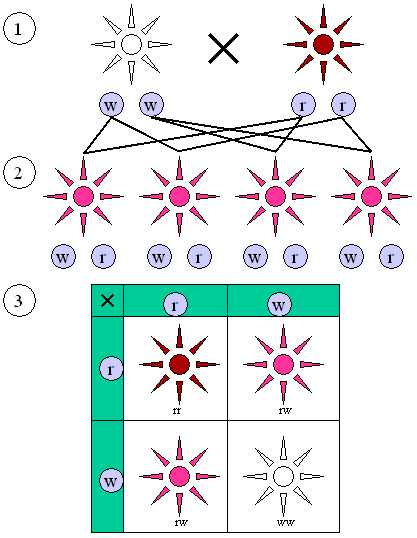 Where w is the wizard gene. People with ww are wizards, rw are squibs, and rr are muggles. This would imply that Hermione's parents are also squibs but this is never followed up on. Draco would propose something more like - code:I can spot one error in his explanation. Height is not just genetic, it's also epigeentic. Things like disease and diet can change the expression of genes in gametes, leading to an offspring that's notably different then either parent. This explains why two five-foot immigrants from a long line of five-foot people can have a six-foot son. The change in genetic expression would be due to changes in their environment from their move. To be fair, this epigenetic discovery may have happened after this fic was written. The author himself noted that there are other genetic factors beyond a simple presence of a gene that could cause a similar outcome. I'm not sure why Draco is freaking out so much since the Wizard Gene hypothesis can be adapted to blood purism with a bit of tweaking. It would suggest things like wizards should only reproduce with wizards and squibs only with squibs. Pureblood families could still hold themselves as superior for having no squibs in their line. There could even be a dramatic proposal to screen the muggle population for squibs and pair them off to squeeze out more wizards. Apply the smallest amount of spin and this could be a real boost for blood purism. Added Space fucked around with this message at 01:36 on Jan 5, 2017 |
|
|
|
The biggest problem is that if the magic gene is recessive then squibs are impossible for two magical parents. This implication should be important and and obvious but is never addressed. The other issue this raises, as you note, is that all muggleborns have two squib parents, which raises population genetics issues or is the product of some seriously weird artificial behavior. i81icu812 fucked around with this message at 02:01 on Jan 5, 2017 |
|
|
|
i81icu812 posted:The biggest problem is that if the magic gene is recessive then squibs are impossible for two magical parents. This implication should be important and and obvious but is never addressed. I could be wrong, but I think Eliezer has actually changed the definition of "squib" anyway. If I recall correctly, in the original books a squib was the child of a wizard who had no magical ability, rather than limited ability. Magic was just a binary thing, you've got it or you don't, there's no difference between a squib and a muggle except that a squib was raised by wizards. Also, I think wizards marrying muggles usually had wizard children (squibs seem to be very rare), which wouldn't make sense if magical ability was determined by a single recessive gene.
|
|
|
|
i81icu812 posted:The biggest problem is that if the magic gene is recessive then squibs are impossible for two magical parents. This implication should be important and and obvious but is never addressed. Not impossible. There could still be things like duplication errors that could 'break' one copy of the wizard gene. The rate would be fairly low but still detectable over a wizarding population in the tens or hundreds of thousands. It's not out of question that squibs married into the muggle population and passed down their wizard gene. There are a bit less then 700,000 births in the UK every year, and only single digits of muggleborns. I'm not a statistician but I'd guess that's actually low.
|
|
|
|
Added Space posted:Not impossible. There could still be things like duplication errors that could 'break' one copy of the wizard gene. The rate would be fairly low but still detectable over a wizarding population in the tens or hundreds of thousands. Eh. If you're saying the random mutation rate of an individual gene is fairly low you mean insignificantly tiny I would agree with you. Something on the order of 1/10,000 or so. https://www.ncbi.nlm.nih.gov/pmc/articles/PMC2836558/ The likelier explanation is that squibs are nearly all illegitimate bastards. Rowling wrote a children's book, so 40 students/year for all of the UK causes all sorts of problems. But to your observation... ~10 muggleborns out of a population of 700,000 births a year is impossibly low. That recessive gene should be extinct within generations without something wonky going on, or a whole bunch of wizards are not getting hogwarts letters like they should.
|
|
|
|
Tiggum posted:I could be wrong, but I think Eliezer has actually changed the definition of "squib" anyway. If I recall correctly, in the original books a squib was the child of a wizard who had no magical ability, rather than limited ability. Magic was just a binary thing, you've got it or you don't, there's no difference between a squib and a muggle except that a squib was raised by wizards. Squibs have some magical sensitivity, usually. They can see things muggles can't, aren't affected by muggle repelling charms, etc. The most extensive proposal I know of is this one here, but unlike Yud, that was written by someone who actually knows what they're talking about beyond high school and a bit of wiki. Personally I just like to think magic inheritance is magical. JK should've just said 'oh sometimes adopted kids inherit magic from their adoptive parents' just to shut everyone up. MikeJF fucked around with this message at 03:51 on Jan 5, 2017 |
|
|
|
MikeJF posted:Squibs have some magical sensitivity, usually. They can see things muggles can't, aren't affected by muggle repelling charms, etc. Hell, wasn't a squib being able to see dementors that muggles couldn't critical to Harry's defense at the start of book 5?
|
|
|
|
Dienes posted:Hell, wasn't a squib being able to see dementors that muggles couldn't critical to Harry's defense at the start of book 5? SQUIBS I have been asked all sorts of questions about Squibs since I first introduced the concept in ‘Chamber of Secrets’. A Squib is almost the opposite of a Muggle-born wizard: he or she is a non-magical person born to at least one magical parent. Squibs are rare; magic is a dominant and resilient gene. Squibs would not be able to attend Hogwarts as students. They are often doomed to a rather sad kind of half-life (yes, you should be feeling sorry for Filch), as their parentage often means that they will be exposed to, if not immersed in, the wizarding community, but can never truly join it. Sometimes they find a way to fit in; Filch has carved himself a niche at Hogwarts and Arabella Figg operates as Dumbledore’s liaison between the magical and Muggle worlds. Neither of these characters can perform magic (Filch’s Kwikspell course never worked), but they still function within the wizarding world because they have access to certain magical objects and creatures that can help them (Arabella Figg does a roaring trade in cross-bred cats and Kneazles, and if you don‘t know what a Kneazle is yet, shame on you). Incidentally, Arabella Figg never saw the Dementors that attacked Harry and Dudley, but she had enough magical knowledge to identify correctly the sensations they created in the alleyway.
|
|
|
|
i81icu812 posted:
A longer discussion about how HP genetics could plausibly work from nearly a year ago!
|
|
|
|
quote:And now even within Ravenclaw, his only remaining competitors were Padma Patil (whose parents came from a non-English-speaking culture and thus had raised her with an actual work ethic), Anthony Goldstein (out of a certain tiny ethnic group that won 25% of the Nobel Prizes) I can't believe you let this blatantly racist poo poo fly under the radar.
|
|
|
|
i81icu812 posted:http://web.archive.org/web/20110713111531/http://www.jkrowling.com/textonly/en/extrastuff_view.cfm?id=19 Well, I'll be damned.
|
|
|
|
Chapter 24: Machiavellian Intelligence Hypothesis aka MAXIMUM  The next morning, Draco is nervously sitting in the Great Hall. quote:Harry Potter came into sight. His face was carefully neutral, but his blue-trimmed robes looked oddly askew, as if they hadn't been put on quite right - Harry covers for Draco and Dumbledore covers for Harry, but Harry makes it clear that this is the only time he can wave off torture. quote:Father had warned Draco against people like this, people who could ruin you and still be so likable that it was hard to hate them properly. Umm... is Harriezer's babbling supposed to be likable? Is there any evidence that anyone besides the Weasley twins actually likes him? quote:"Why... didn't you?" I don't know, I can believe Harriezer is that dumb. I know that pointing the finger wouldn't push either Malfroy out from the table considering what Lucius could talk his way out of. However, it would give them a serious black eye. They're already your committed enemies. It's not like Lucius would be baited into drastic, obvious action based on this provocation. Not taking this opportunity and insisting on a ridiculous gamble of secular conversion only makes Harry's situation worse. This would be fine for a tragic work, but not one where your main character eventually becomes an immortal wizard prince. quote:But then Draco didn't understand what else Harry could be trying. I thought I abused commas. When did Harry ever sound angry? Harry makes his pitch that knowing the truth is in Draco's best interest, but Draco still has doubts. quote:"What was your plan?" The "Rule of Three" here has gotten traction in the fanfiction community. I see it pop up from time to time. Yudkowsky does have some clever ideas when he's not going on about subjects he barely understands. When confronted with Harry's latest round of insanity, Draco resolves to smile, nod, and keep a hidden knife ready. quote:"I know that I've abused our friendship terribly," Harry said finally. "But please realize, Draco, that in the end, I just wanted the two of us to find the truth together. Is that something you can forgive?" Not really? By not turning you in right away Harry has pretty much whiffed on his best opportunity. Get your father to buy you a new wand and you're in the clear. Harry asks for some money and Draco agrees to loan him some. They decide they can't take in new members to their secret club. quote:"Because I don't know enough science," Draco said, carefully keeping his voice neutral. Harry will worry about the nonsense psychobabble, and Draco is in charge of the people. How is it that Harriezer has read deep psychological studies but never heard of Mao or Stalin? Draco plans for the inevitable backstab. quote:...unless all that was exactly what Harry wanted Draco to do as part of some even larger plot which Draco would play right into by trying to foil this one, Harry might even know that his plan was unworkable, it might have no purpose except luring Draco to thwart it - And now we have to imagine Lucius as a secret animation nerd. Harriezer, in the mean time, is smirking to himself about how insufferably clever all this is. quote:{B}eside Draco, Harry walked along with a smile on his face, thinking about the evolutionary origins of human intelligence. This bit of "science" doesn't warrant a separate examination, since evolutionary psychology is unverifiable conjecture at best.
|
|
|
|
I think this was the part that, while first reading it, made me realise it was fundamentally drivel and propaganda. Before this one, I had no real idea who Yudkowski was, then I looked him up and it all made sense. Whatever about all of the stupid anime references, the evolutionary psychology bullshit had me gagging - but it highlights how hypocritical Harry is being about the MoR; a "true scientist" would immediately dismiss it as unfalsifiable and therefore not worth thinking about. It infuriated me - but I kept reading out of momentum until the Battle Commander stuff started and I got too bored to continue.
|
|
|
|
|
I really dislike how HPMOR has sort of, I don't know, seemingly set this standard for what fan appreciation should be in the eyes of a lot of people. For example, fanfiction. It's like it turns self-inserts from something that was once a laughable thing where you would be mocked for into this thing where it's fine providing you go, oh, no, this is an AU Harry. It feels like a lot of fanfiction has set about trying to 'fix' the work the author puts out, all the while jamming in pop culture references flavored with 'I've only ever watched anime' dialogue and actions. This is, of course, excepting the utterly bizarre fact that he wrote this without reading, understanding or particularly caring about Harry Potter. You see it with Wildbow's Worm stuff, too. It's a superhero universe that feels really unique and modern with a cast of interesting characters - but the fans only care about how uber the protagonist is and writing AU fanfic (or crossover fanfic or fetishbait fanfic). Admittedly, I was only really active in fandom circles over a decade ago (on Spacebattles, funnily enough), but it's like seeing the next generation and wondering what's going on. It astounds me that people actually like Yudkowski or think he's particularly interesting. Seriously, Roko's Basilisk?
|
|
|
|
|

|
| # ? May 17, 2024 17:50 |
Milky Moor posted:It astounds me that people actually like Yudkowski or think he's particularly interesting. Seriously, Roko's Basilisk? He appeals to some smart people by giving them an internal justification for feeling superior to those around them. He's also pretty good at arguing a point if you don't know much about the subject matter. And from there it's a cult - sorry, phyg - of personality where people talk about the intellectual biases of others while ignoring the way they commit them themselves. It's not particularly interesting, but it is pretty funny. Edit: To be fair, calling it a cult might be slightly unfair. It has cultlike attributes but I don't think that straightup makes it a cult. Cavelcade fucked around with this message at 15:19 on Jan 5, 2017 |
|
|
|



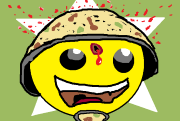

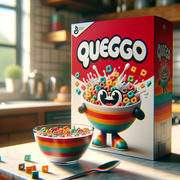
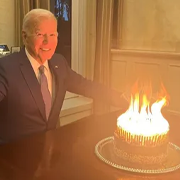

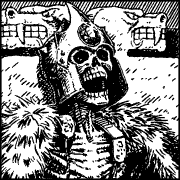



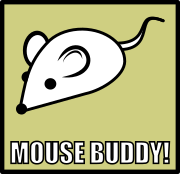
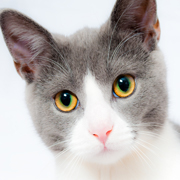
 Cat Army
Cat Army 
